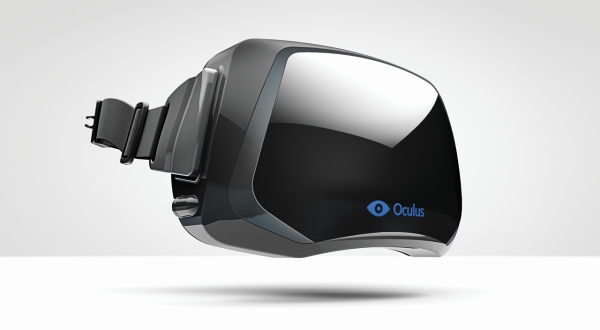Oculus Founder: Virtual Reality Will Be Free Eventually

Creator of the Oculus Rift, Palmer Lucky, discussed the benefits of virtual reality, why it's likely to stick around and how the costs of this almost sci-fi concept will eventually whittle down to that of nothing. Lucky explained that sometime in the future VR will be free.
In an interview with Gamespot, Lucky stated that...
In the long-run, it's impossible to stop [VR]. At some point, technology will advance to the point where VR comes along for free, […] I don't expect everyone to be interested in VR as it is today, which is honestly a pretty expensive, relatively primitive proof of concept compared to where we want it to be, where science-fiction depicts it. But it is inevitable that it will become better.
I'm not really sure in what way virtual reality could be free. I mean there's always going to be some kind of required technology to bridge the gap between the user and the virtual experience, whether it be a headset, a viewing screen or a room. Of course, Lucky could be talking about tourist experiences where people step into a virtual space that projects virtual reality around them, similar to the Holodeck from Star Trek.
Otherwise, it's difficult to see how there wouldn't be any costs attached to the VR experience.
Nevertheless, in the very lengthy and interesting interview with Gamespot, Lucky does explain that the cost will eventually go down. So even if we're not talking about virtual reality devices like the Oculus Rift or the HTC Vive ever being free, Lucky does believe that they will be low enough in cost to be affordable by most enthusiast, saying...
Eventually, the cost will be so low and the quality will be so high, and the breadth of content will be so wide that it's almost impossible to imagine anyone but the most diehard luddite saying, 'I have no use for virtual reality.'
There are already tons of projects in the works or already available where support for virtual reality devices like the Oculus Rift is implemented.
Heck, even some modders have taken it upon themselves to manually add Rift support for games that weren't even made to support VR, such as Grand Theft Auto V and Skyrim.
Your Daily Blend of Entertainment News
It's been difficult properly promoting virtual reality to the “non-believers” because there's no way to properly convey the experience without it seeming silly. Lucky does bring this out in the interview, explaining how it's best to experience the technology firsthand before completely knocking it. I think it's something that will eventually catch on in mainstream as more people get their hands on it, but right now it's still a niche, enthusiast pastime that's slowly gaining traction.
Another setback for the VR experience is that not just anyone can use it... you need a very hefty PC rig for the Oculus Rift. I'm talking a starting point of a GTX 970.
The consumer version of the Rift will release in 2016 but a final price hasn't been set just yet.
Staff Writer at CinemaBlend.

